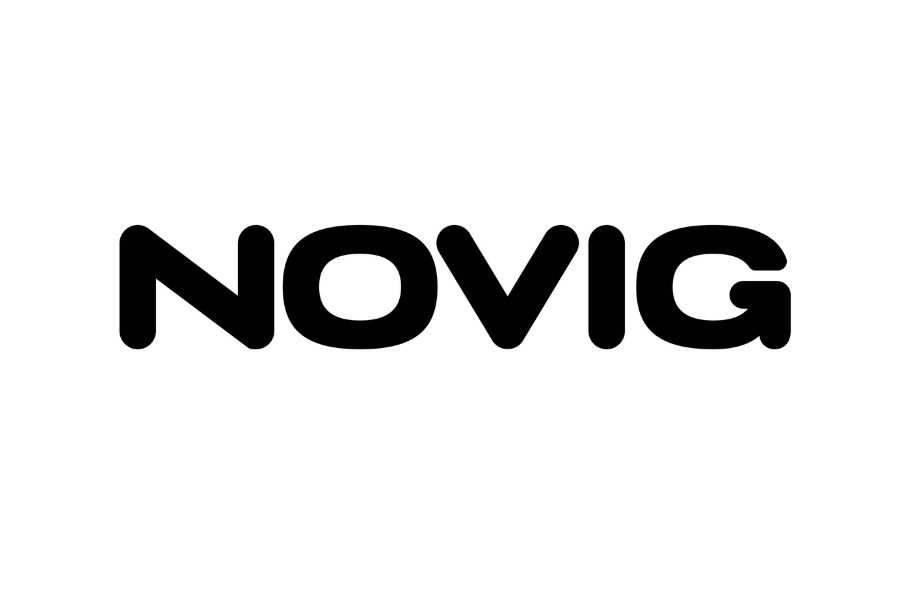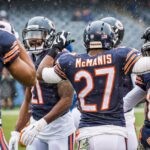Novig sees interest from prediction platforms Kalshi, Polymarket

Prediction markets Kalshi and Polymarket are among the companies that have recently shown interest in acquiring sweepstakes-style prediction market platform Novig, according to Front Office Sports.
It is unclear whether formal offers were made, despite a source telling Front Office Sports that Novig is not for sale.
A Kalshi spokesperson also told Front Office Sports that the company “has no plans for any acquisitions at the moment.” Novig and Polymarket declined to comment.
Novig, founded in 2021 and launched publicly in September 2024, operates a peer-to-peer platform for betting on sports outcomes without a commission. Users trade in Novig coins with no cash value or Novig cash, which can be redeemed.
Novig recently generated US$18 million during a funding round in August, but pulled out from New Jersey just days later because of offering sweepstakes-style betting options.
Polymarket and Kalshi allow users to trade on political and global events in addition to sports. However, their growth has attracted scrutiny.
Polymarket was stopped from operating in the US in 2022 until the Commodity Futures Trading Commission granted clearance to return this month, while Kalshi is fighting lawsuits from regulators, most recently Massachusetts, that argue its sports contracts resemble unlicensed betting.
Interest in Novig comes amid a wider wave of dealmaking in the prediction-market sector as companies seek to capture demand during the NFL season.
Charlotte Capewell brings her passion for storytelling and expertise in writing, researching, and the gambling industry to every article she writes. Her specialties include the US gambling industry, regulator legislation, igaming, and more.
Verticals:
Sectors:
Topics:
Dig Deeper
The Backstory
Why prediction markets are back in the spotlight
Prediction platforms are riding a wave of interest and scrutiny as sports and politics converge with fintech. Interest in acquiring sweepstakes-style operator Novig by rivals Kalshi and Polymarket, as reported by Front Office Sports and summarized in coverage of Novig’s inbound attention, underscores how quickly market leaders are trying to consolidate demand during the NFL season. Even without formal bids, the dynamic signals a sector racing to scale product, liquidity and compliance before regulators set firmer guardrails.
Novig’s pitch—a peer-to-peer exchange with no commission and dual in-app currencies—helped it raise $18 million in August. Days later it began unwinding in key jurisdictions. That whiplash captures the industry’s tension: products that feel like trading can grow fast, but the closer they resemble wagering, the more they collide with state and federal rules. Kalshi and Polymarket, which let users trade on everything from elections to celebrity news, have pushed closer to regulated financial markets. Yet the line between a derivatives venue and a sportsbook keeps moving, and authorities are increasingly policing how these firms market, geofence and structure payouts.
How New Jersey set the tone on sweepstakes models
Novig’s retreat from New Jersey crystallized the regulatory turn. After its fundraise, Novig told users it would restrict the platform in the state, citing a new law that targets sweepstakes-style betting. The step followed Gov. Phil Murphy’s signing of Assembly Bill 5447, which curbs contests that use virtual coins and bonus cash in ways regulators say mimic wagering. The contours and timing are laid out in reporting on Novig’s withdrawal from New Jersey, which also notes similar crackdowns in Connecticut and Montana and proposed measures in California and New York.
Novig’s product lets users buy Novig Coins and receive Novig Cash to stake on sports for U.S. dollars. That dual-currency design has become a flashpoint for lawmakers who argue the structure skirts licensing, consumer protections and tax regimes that apply to sportsbooks. Novig launched first as a licensed book in Colorado, then pivoted to sweepstakes in pursuit of 42-state reach. Unlike Kalshi, which is fighting regulators in court, Novig has opted to exit states at the first sign of legal conflict. New Jersey became at least the fourth state in that retrenchment.
The stakes are immediate. If models that function like wagering but brand themselves as social or sweepstakes continue to proliferate, regulators risk a patchwork of rules that encourage jurisdiction shopping. New Jersey’s move, and others following, seek to collapse that gap by treating function over form—pressuring operators to either obtain gambling licenses or redesign products to behave more like promotional games than betting exchanges.
Kalshi and Polymarket test the regulatory perimeter
While Novig pulls back, Kalshi and Polymarket are pressing forward, albeit on uneven ground. Polymarket was forced out of the U.S. in 2022, then secured a path back after clearance from the Commodity Futures Trading Commission, according to the account of recent interest in Novig. Polymarket also announced a high-profile tie-up with X as its official prediction partner, promising an integrated product that blends market odds with Grok analysis and real-time social insights. The deal, described in coverage of Polymarket’s partnership with X, gives the platform a megaphone that could supercharge user acquisition ahead of the U.S. presidential cycle.
Kalshi has carved a distinct strategy by seeking explicit regulatory permission for event contracts, including on sports, which has triggered lawsuits from state regulators who say those products resemble unlicensed betting. That litigation posture, noted in the Novig interest report, is shaping a new legal frontier: whether certain event markets belong under commodities regulation, gambling regimes or both. If Kalshi prevails on more categories, it could force a broader standard for compliant prediction contracts in the U.S. If it loses, operators will likely reorient to less contentious markets or shift internationally.
Global enforcement clamps down on gray areas
The cross-border picture is no less complicated. Australia’s communications regulator recently ordered internet providers to block Polymarket, listing it among four illegal gambling sites aimed at Australians. Authorities cited breaches of the Interactive Gambling Act, including political betting offers, as detailed in coverage of the Australian ban. The same report noted Polymarket’s $112 million purchase of a CFTC-licensed exchange and clearinghouse, QCEX, a move that could streamline U.S. compliance while the platform faces blocks elsewhere.
Singapore has taken an even harder line, declaring Polymarket illegal, with possible fines and jail time for users. The move fits a broader crackdown that includes thousands of site blocks and tighter control of casino shareholders. Those actions are outlined in reporting on Singapore’s ban of Polymarket, which places the platform alongside other unlicensed online gambling services. France, Taiwan and parts of the U.S. have imposed bans or restrictions as well.
The international mosaic matters for growth strategies. Platforms that lose access to major English-speaking markets must either double down on compliance in the U.S., seek licenses in friendlier jurisdictions or evolve into data and analytics businesses that monetize insights rather than betting volumes. Polymarket’s partnership with X hints at the latter path, even as it pursues regulatory footholds through acquisitions and settlement with U.S. authorities.
Marketing missteps put leagues in the frame
As prediction markets target sports fans, brand governance is a new pressure point. Kalshi and Polymarket faced accusations of using NFL and NFLPA marks and player images without approval, including team logos and references like “Super Bowl,” according to coverage of the alleged unauthorized NFL branding. The NFL has signaled willingness to work with prediction venues, but only if they meet the compliance and information-sharing standards required of licensed sportsbooks.
That threshold is costly and complex. Kalshi has argued in court that satisfying league-style demands is onerous, and the NFL has told players and staff that prediction markets mimic traditional sportsbooks, which are off-limits. Marketing that blurs those lines risks fast escalations from rights holders guarding trademarks and integrity programs. For operators, clean separation from league IP, plus robust integrity protocols, is becoming table stakes to avoid legal and reputational blowback.
Why deal talk is accelerating now
With football season amplifying traffic, leading players are racing to secure liquidity, distribution and regulatory clarity. The flirtation with Novig, captured in the report on inbound interest from Kalshi and Polymarket, shows incumbents looking to fold novel sweepstakes mechanics into their funnels or, at minimum, neutralize a fast-growing competitor. Yet New Jersey’s crackdown, detailed in the account of Novig’s pullout, raises the cost of that strategy by shrinking the legal map for dual-currency models.
The sector’s near-term outlook hinges on three pivots. First, whether U.S. regulators define clear lanes for tradable event contracts versus gambling, which would give Kalshi-style offerings a firmer runway. Second, whether platforms can acquire licenses or regulated infrastructure, as Polymarket is attempting with QCEX, to de-risk operations in key markets. Third, whether marketing evolves to win league trust without triggering IP fights. The companies that balance those demands fastest will shape a market that looks less like a loophole and more like a durable, regulated asset class for betting and information alike.







